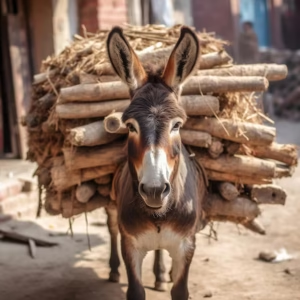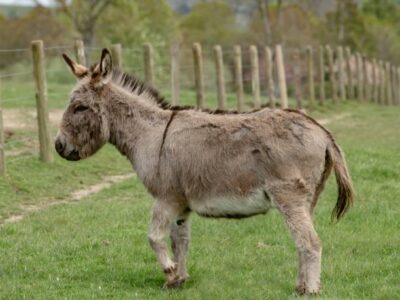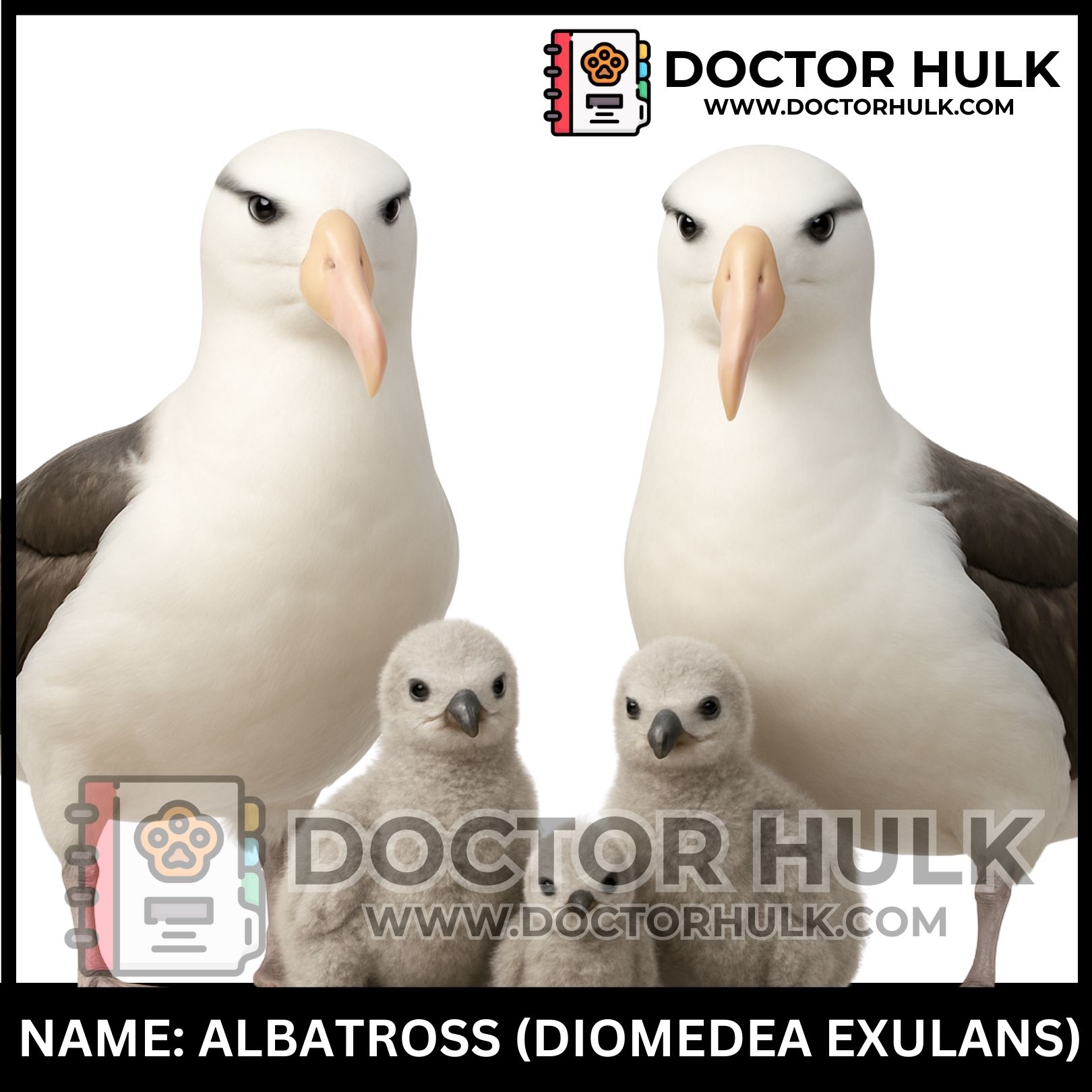Donkeys are strong, calm, and hardworking animals that are known for their ability to carry heavy loads and walk long distances. For many centuries, donkeys have been faithful helpers to farmers, traders, and travelers. They are intelligent, gentle, and full of personality.
Scientific Classification
-
Kingdom: Animalia
-
Phylum: Chordata
-
Class: Mammalia
-
Order: Perissodactyla
-
Family: Equidae
-
Genus: Equus
-
Species: Equus africanus asinus (domesticated donkey)
Common Names
-
Donkey
-
Ass (formal term)
-
Jenny (female), Jack (male), Foal (baby)
-
“Jakki” (Hausa)
-
“Kẹtẹkẹtẹ” (Yoruba)
-
“Punda” (Swahili)
Geographic Distribution
Donkeys are found worldwide, especially in:
-
Africa, Asia, and the Middle East
-
Rural villages and farming areas
-
Deserts, rocky hills, and dry climates
Originally from North Africa, donkeys spread around the world through trade and migration.

Image showing a working donkey carrying firewood in a rural village path (Source: Freepik)
Species of Donkeys
1. Standard Donkey
Most common working donkey used for farming and transport.

Image showing a brown standard donkey pulling a cart (Source: Pexels)
Key Facts:
-
Medium-sized and sturdy
-
Can carry heavy loads over long distances
-
Often used in villages and markets
2. Miniature Donkey
Smaller in size and often kept as pets or for light work.

Image showing a miniature donkey standing in a grassy yard (Source: iStock)
Key Facts:
-
Friendly and calm
-
Popular with children and elderly
-
Not suitable for hard labor
Behavior and Lifestyle
Donkeys are smart and observant animals, not stubborn as people think.
-
They remember paths and people for many years
-
Very cautious and careful, they stop when they sense danger
-
Enjoy companionship and become sad when left alone
-
Communicate with brays, ear movement, and body posture
A happy donkey needs love, patience, and respect, not shouting or beating.
What do donkeys eat?
Donkeys are herbivores and need rough food with low sugar.
Their diet includes:
-
Grass, hay, and dry leaves
-
Cassava peels, maize stalks, and millet husks
-
Access to clean water and salt licks
Avoid giving:
-
Too much fresh cassava or bread
-
Spoiled food or plastic waste
Donkeys eat slowly and need to chew their food well to stay healthy.
Fun facts
-
Donkeys have incredible memories, they can recognize places from 25 years ago.
-
A donkey’s loud bray can be heard up to 3 kilometers away.
-
Donkeys have tough hooves that are great for rocky terrain.
-
Unlike horses, donkeys are not easily scared.
-
Donkeys have large ears that help keep them cool in hot weather.
Importance to Humans
Donkeys help people in many ways, especially in rural communities:
-
Transporting water, firewood, and farm goods
-
Carrying loads to market or across hills
-
Used in ploughing or tilling soil on small farms
-
Provide manure for gardening and crop fields
-
Serve as companions or therapy animals in some places
In many African villages, donkeys are a source of income and survival.
Health & common issues
Donkeys are strong, but still need proper care and rest.
Common health problems include the following:
-
Wounds and sores from poor harnessing
-
Hoof overgrowth or cracks
-
Parasites (worms, ticks, lice)
-
Colic (stomach pain) from wrong feeding
-
Dehydration or weakness in hot weather
Veterinary needs:
-
Regular hoof trimming and deworming
-
Clean, padded harnesses to avoid injuries
-
Enough shade, water, and food
-
Rest between heavy tasks
Conservation and welfare
Domesticated donkeys are not endangered, but they face cruelty and neglect in many areas.
Major concerns:
-
Overworking and poor feeding
-
Abandonment or theft
-
Killing for skin trade in some regions
Solutions:
-
Donkey welfare education for owners
-
Use of humane harnesses and carts
-
Laws to protect donkeys from abuse and illegal trade
-
Support for donkey health outreach programs

Image showing a content donkey resting in the shade after a day’s work (Source: Vecteezy)
Need help treating your donkey or learning better care tips? Contact Doctor Hulk Veterinary Hospital Today @ 08143397614.















Reviews
There are no reviews yet.